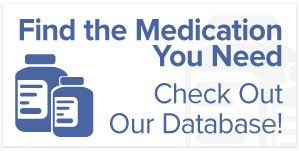The COVID-19 outbreak has far-reaching global implications, affecting the social, economic, political, and healthcare systems of many countries. The pandemic’s human toll, as assessed by the lives lost or suffering, the economic downturn, and the mental toll, are compelling reasons to turn difficult lessons into actionable insights, not only to avoid future disasters but also to improve healthcare service in general.
Many elements of the healthcare sector, particularly in terms of overall readiness, have been shaken by the COVID-19 outbreak.
Several facets of healthcare appeared to be evolving and changing at the personal, societal, and governmental levels. Following the pandemic, below are some reforms that have been implemented or are expected to be implemented.
Increase in Remote Care
Previously, remote care or online services were employed in crises, disasters, and everyday activities. Their extensive use has expanded during the COVID-19 pandemic. Currently, telehealth services are being employed in large-scale patient assessment and screening before appointments, standard medical observation at home, telemedicine contacts, and some expert monitoring of outpatient therapy. Following COVID-19, telehealth is anticipated to continue to play an important part in such efforts.
Use of AI and Efficient Monitoring Systems
COVID’s rapid global expansion emphasizes the need to establish effective and representational infectious illnesses monitoring systems. A critical reform in the healthcare sector is screening for infectious illnesses and recording positive patients via certified medical labs or hospital networks to check for the presence of particular microbiological pathogens that pose a public health danger in a given population.
To reinforce existing structures, systematic use of big datasets and AI technology to predict catastrophes and reveal and understand existing system faults is required.
Better Communication Through Technology
Without technological breakthroughs in cognitive computing, communication, and mobility, the medical revolution would be unachievable. In the midst of the pandemic, expanding Medicare telemedicine coverage and bringing healthcare nearer to people’s homes is a good thing overall. However, since not all available the public teleconference software meets frequently accepted privacy criteria, security concerns continue. Consequently, innovative programs must make every effort to preserve both the confidentiality of the healthcare practitioner and the privacy of the patient.

If you suspect you have COVID or are suffering from symptoms and can’t seem to afford your prescription meds, get enrolled in The Rx Helper’s Prescription Assistance Program. COVID treatment costs can be significant. If you’re eligible, you’ll get access to affordable medication at subsidized prices or even for free. Contact us now for more information.
Disclaimer: This article is only intended for educational purposes and shouldn’t be used as a substitute for medical advice.



